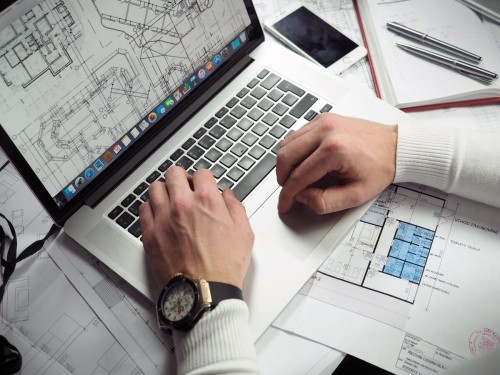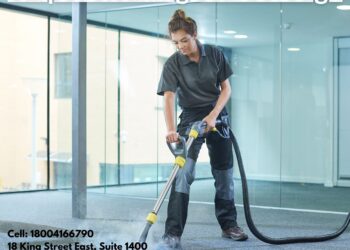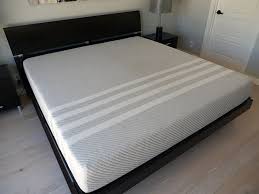With remote work becoming a permanent or part-time option for many, setting up a productive and comfortable home office has become essential. Unlike traditional offices, home offices require careful thought around space, ergonomics, and design. To maximize productivity, having the right office furniture can make a significant difference.
The right office furniture can transform any home workspace into a professional environment, whether it’s a dedicated room, a cozy corner, or even a kitchen table setup. In this guide, we’ll explore essential pieces of office furniture that can help remote workers stay focused, comfortable, and efficient.
Importance of Choosing the Right Office Furniture
The furniture you select for your home office affects not only your productivity but also your physical and mental well-being. Working from home comes with its own set of challenges, and poor-quality furniture can lead to back pain, eye strain, or lack of focus. Investing in ergonomic, functional, and stylish office furniture is critical for creating a workspace where you’ll want to spend time.
Essential Office Furniture for Remote Work
Here are the must-have pieces of office furniture that every remote worker should consider for their home setup.
1. Ergonomic Desk: A Solid Foundation
An ergonomic desk is the heart of any productive home office. Here’s why it’s indispensable:
- Adjustable Height: A desk with adjustable height settings can be tailored to fit your body’s needs, reducing strain on your neck and back.
- Ample Space: A large enough workspace allows room for multiple screens, notebooks, or other work tools.
- Cable Management: Built-in cable management features keep your cords organized, creating a clutter-free environment.
2. Comfortable Office Chair: Support for Long Hours
A comfortable chair is one of the most important pieces of office furniture. Look for a chair with the following features:
- Lumbar Support: Proper back support reduces strain, especially during long work sessions.
- Adjustable Armrests: Armrests that move allow for better posture, reducing shoulder tension.
- Breathable Fabric: A mesh or breathable fabric prevents overheating, especially in warm climates.
3. Adjustable Standing Desk Converter: For a Healthier Work Routine
If you’re not ready to commit to a standing desk, a desk converter is a great alternative:
- Flexibility: Easily transition between sitting and standing to avoid staying in one position all day.
- Portable Design: Many desk converters are lightweight, making them easy to move.
- Health Benefits: Studies show standing desks can help reduce back pain and improve focus.
4. Efficient Storage Solutions: Keep Your Workspace Clutter-Free
Storage solutions prevent your workspace from getting overwhelmed by paperwork and supplies. Consider these options:
- Drawer Cabinets: Ideal for small office items, drawer cabinets help you organize without taking up much space.
- Mobile Storage Units: Rolling units provide flexibility and allow you to adjust your setup when needed.
5. Functional Bookshelves: For Easy Access to Resources
Bookshelves aren’t just for books; they’re perfect for storing files, stationery, or decor items:
- Wall-Mounted Shelves: Save floor space with wall-mounted options.
- Adjustable Shelves: Some bookshelves have adjustable height settings to accommodate items of different sizes.
6. Spacious Filing Cabinets: Organize Important Documents
A filing cabinet helps keep essential documents safe and accessible:
- Lockable Options: For sensitive information, choose lockable cabinets.
- Compact Designs: Slim cabinets fit into small spaces, making them ideal for home offices.
7. Practical Laptop Stands: Avoid Neck Strain
A laptop stand elevates your screen to eye level, which is essential for good posture:
- Adjustable Height: Look for models that allow you to find the perfect height.
- Portable Design: Many stands fold up, making them easy to carry or store.
8. Desk Organizers: Keep Essentials Within Reach
Desk organizers keep essentials like pens, paper, and sticky notes in reach:
- Multi-Compartment Organizers: Organizers with various compartments hold a variety of office items.
- Compact Design: A compact organizer takes up minimal desk space while improving your workspace’s efficiency.
Style and Comfort: Blending Practicality and Aesthetic
While function is crucial, style should not be overlooked. Your home office is part of your living space, and blending aesthetics with functionality can create a comfortable and inviting environment. Consider matching colors, materials, and textures that complement your room’s decor. A stylish and cohesive workspace can enhance mood and motivation.
Tips to Set Up an Effective Home Office
Setting up an efficient home office goes beyond just furniture selection. Here are some extra tips to enhance your workspace:
- Maximize Natural Light: Natural light helps reduce eye strain and boosts mood. Place your desk near a window if possible.
- Minimize Distractions: If possible, choose a room with minimal noise and distractions.
- Add Plants: Greenery can improve air quality and add a touch of nature to your workspace.
- Maintain Cleanliness: A clean workspace boosts mental clarity. Regularly organize and declutter.
- Personalize Your Space: Adding personal touches like photos, artwork, or favorite colors can make your workspace more inviting.
Frequently Asked Questions (FAQs)
- What is the best type of desk for a home office?
A desk that’s ergonomic, adjustable, and large enough for your work tools is ideal. An adjustable standing desk or desk converter can provide flexibility and health benefits. - How important is an ergonomic office chair?
An ergonomic chair is essential to support your spine, reduce strain, and prevent discomfort, especially if you work long hours. - Do I need a filing cabinet for a home office?
If you deal with a lot of paperwork, a filing cabinet can be very useful for keeping documents organized and secure. - Can I use a dining chair as an office chair?
Dining chairs lack ergonomic support and may lead to discomfort during long work hours. An office chair with adjustable features is preferable. - Is a laptop stand necessary?
If you use a laptop, a stand can help you maintain proper posture by elevating the screen to eye level, reducing neck strain. - What storage solutions work best for small spaces?
Wall-mounted shelves, slim cabinets, and drawer organizers are excellent for smaller spaces as they minimize floor space usage. - Should I invest in high-quality office furniture for a home office?
Yes, high-quality furniture is more durable, ergonomic, and contributes to a healthier and more productive work environment.
Conclusion
Creating an efficient and comfortable home office is essential for remote work success. By choosing the right office furniture—such as ergonomic chairs, spacious desks, and effective storage solutions—you can significantly improve your comfort and productivity. An organized, stylish workspace also boosts motivation, making workdays more enjoyable.
Whether you’re setting up a dedicated home office or a multipurpose work corner, investing in quality office furniture is a wise choice.



